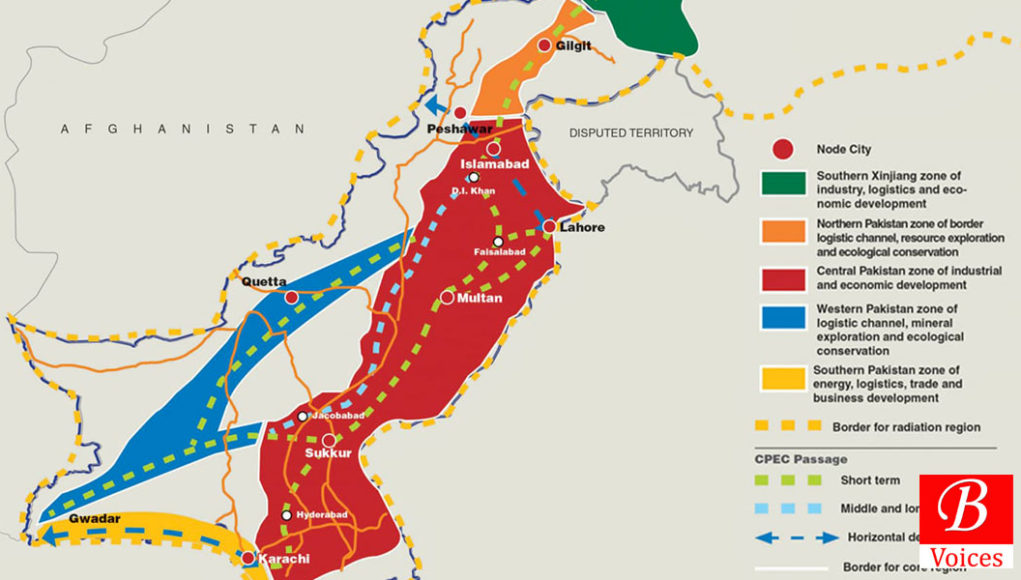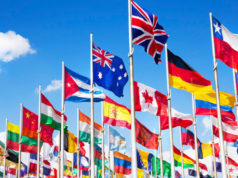Adnan Aamir
The debate on China-Pakistan Economic Corridor (CPEC) was once again ignited after Dr. Kaiser Bengali termed CPEC “Game Over” in an interview with The News on Sunday.
Dr. Bengali is an economist who has served in different government positions off and on since 2008. Currently he is the statutory member of Balochistan in National Finance Commission (NFC). However, He had supported CPEC when he was Head of Chief Minister’s Policy Reforms Unit (CMPRU) in Balochistan which tantamount to double standards on analyzing CPEC.
Lack of Transparency
CPEC is the flagship project of One Belt and One Road Initiative of China in Pakistan. CPEC will result in investment of almost $58 billion in Pakistan in different projects and through different modes which also include loans.
Dr. Bengali mentioned in his interview that no details are available about CPEC projects and the government is not ready to answer any questions. He even said that government make claims about different CPEC projects but they have no documents or figures to support this claim.
CPEC has virtually become a corridor of secrecy and a lot has been written on the need to make the agreements public. Federal government has taken the line that CPEC agreements can’t be made public due to an understanding with China.
Trade Imbalance
In his interview with TNS, former Advisor to Chief Minister (CM) Balochistan has also claimed that CPEC will have adverse effect on local businesses of Pakistan. He claims that Chinese businesses will export everything from China because they have tax exemptions. In addition to that the trade balance will further widen up in favor of China.
This argument has also been supported by Trade associations in Pakistan at multiple occasions.
Pakistan Spending on CPEC
Dr. Bengali also revealed that Pakistan is spending on CPEC projects from its own resources. The popular assumption is that all CPEC projects are funded by China but Dr. Bengali claimed the contrary. He said that All the CPEC roads are being built by Pakistan and cost of providing security to the CPEC-related Chinese workforce and infrastructure falls on Pakistan.
This claim made by Dr. Bengali is news for many people including some analysts.
Share of revenues of Pakistan from Gwadar Port is only 9 per cent while China has 91 per cent of the share – Dr. Kaiser Bengali
Environmental Damage
Dr. Bengali also highlighted the potential environmental damage caused from CPEC projects. He particularly mentioned the lack of Environmental Impact Assessments (EIAs) which are must for starting projects such as coal-powered plants.
This issues has already been raised multiple times especially about the coal power projects in Hub. Journalists have written about the need to not use coal power plants in hub to protect the environment. Former speaker of Balochistan Assembly, Aslam Bhootani has been in forefront on opposing coal power projects in Hub. Recently, his petition against these plants was approved for hearing in Environment Protection Tribunal of Balochistan High court.
Gwadar Port
Furthermore, Dr. Kaiser Bengali made the startling claim about Gwadar Port that it’s built for the purpose of re-exporting Chinese products brought into Pakistan via a land route. He also claimed that share of revenues of Pakistan from Gwadar Port is only 9 per cent while China has 91 per cent of the share.
These figures are again news for many readers and need further verification.
He claimed that Gwadar can’t be a commercial hub like Dubai because there is no water available in Gwadar to support such development. He also pointed to water supplied to Gwadar city through Water Tankers from Mirani Dam in District Kech, 150 KM away from Gwadar city, at a cost of Rs. 25,000. He also told TNS about stories that thieves in Gwadar steal water from the homes of people.
The issue of water shortage in Gwadar is chronic and rightly pointed out by Dr. Bengali. However, He exaggerated the issue of stealing of water from the houses in Gwadar. There were one or two such issues and that should not be exaggerated to make a point which is already obvious.
As per Dr. Bengali CPEC was hugely beneficial to the people of Pakistan and China and a highway of national integration and stability in 2015 and same CPEC became game over in 2017
Double Standards
Now coming back to the time when Dr. Kaiser Bengali headed CMPRU in Balochistan from 2013 to 2016.
In May 2015 the CPEC route controversy was at its peak and at that opportune time CMPRU published a report titled China-Pakistan Economic Corridor: The Route Controversy. Dr. Benagli was lead author of the report and it argued with facts that Western Route is likely to be the shortest and least cost in terms of opportunity cost and dislocation compensation cost.
In the same report Dr. Bengali wrote in the forward “There is no doubt that the Economic Corridor will be hugely beneficial to the people of Pakistan and China.” He even termed CPEC “a highway of national integration and stability” if western route is to be followed.
Just days after publication of this report, Federal government reacted adversely to the report and Balochistan government backtracked from this report. Dr. Bengali was quoted in newspapers saying that CPEC route controversy has been resolved.
Another thing also needs to be mentioned here that the aforementioned report about CPEC was the only valuable work carried out by CMPRU in three years. Other reports published by CMPRU had basic level mistakes which were pointed out in 2015.
The point is that as per Dr. Bengali CPEC was hugely beneficial to the people of Pakistan and China and a highway of national integration and stability in 2015 and same CPEC became game over in 2017. This is simply unfathomable. The only difference in circumstances is that in 2015 Dr. Bengali was advisor to Balochistan government and currently he holds no such position.
The bold and candid views of Dr. Bengali on CPEC, whether one agrees with them or not, are appreciable but those who have interest in CPEC also hope that his views will not take a 180 degree turn once he gets an advisory position in government once again in future.
Disclaimer: Views expressed in this article are those of the author and Balochistan Voices not necessarily agrees with them.
Want to add something? Feel free to write it down in comments section!
Share your comments!








